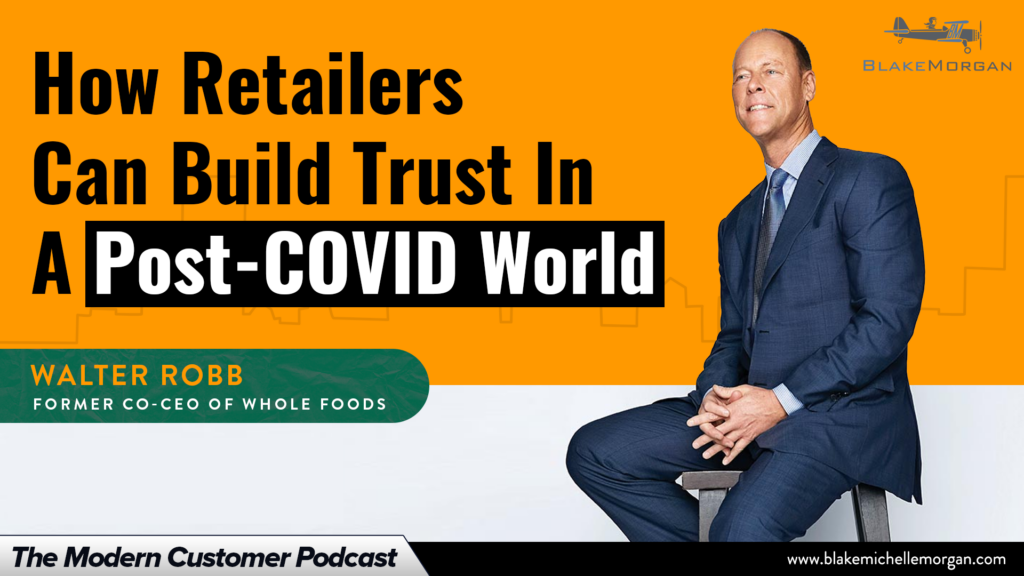After months of quarantine and isolation, consumers are slowly starting to adjust to a new life with COVID-19. As stores reopen and re-adjust, they are faced with customers who are drastically different than they were just six month ago. According to Walter Robb, former co-CEO of Whole Foods, in order to transition and move forward, stores must re-build consumer trust.
Moving forward in the pandemic starts by understanding what customers are thinking and feeling. Robb’s current company, S2G Ventures, recently published a report about the future of food in the age of COVID and uncovered many changes to customers’ mindsets. Today’s customers are out of their pre-COVID rhythm and are trying to find and settle into new routines while wrapping their heads around all the changes. Customers are adjusting and adapting by doing more things at home, leaning on different experiences and connecting with friends and brands digitally.
Amidst all these changes, what customers really want is trust. They want the safety, security and transparency of trusting the companies they do business with. That includes things like knowing where their food comes from and understanding the manufacturing process for their clothes and home items.
According to Robb, today’s retailers are at a tipping point: with a new generation of shoppers and a new world situation, companies have to contribute to solutions—they can’t just sit back. Retailers must actively work to build consumer trust by being transparent and authentic.
Robb says retailers can re-earn trust and loyalty through three key principles:
- Act with integrity in every interaction. Customers interact with brands in a number of ways, from apps to in-store experiences and new digital platforms. Each interaction is a chance for a brand to re-earn trust and loyalty. Lasting trust comes from consistent actions. Customers have to know what to expect and that they will get great service every time they interact with the brand. Building trust doesn’t require huge actions—it’s the simple, everyday interactions that make a difference when they are authentic and consistent.
- Be willing to serve customers. Some customers say they want to be served in certain ways, such as grocery customers saying they want to pick up items in store or have certain things delivered. It’s up to brands to develop the capabilities to serve customers how and when they want to be served. Brands earn trust when they listen to customers and are willing to meet their needs.
- Use data to understand customers. Most customers are willing to share their personal information with a brand if it leads to more personalized experiences. Modern customers expect companies to know who they are and act according to their individual preferences. Brands can’t build unique experiences and establish trust if they don’t know their customers.
COVID has changed how customers think and act, and retailers need to respond accordingly. To build trust, brands must understand modern customers and find ways to rebuild trust every day.
Blake Morgan is the bestselling author of The Customer of the Future. Sign up for her new course here.
For regular updates on customer experience, sign up for her weekly newsletter here.

